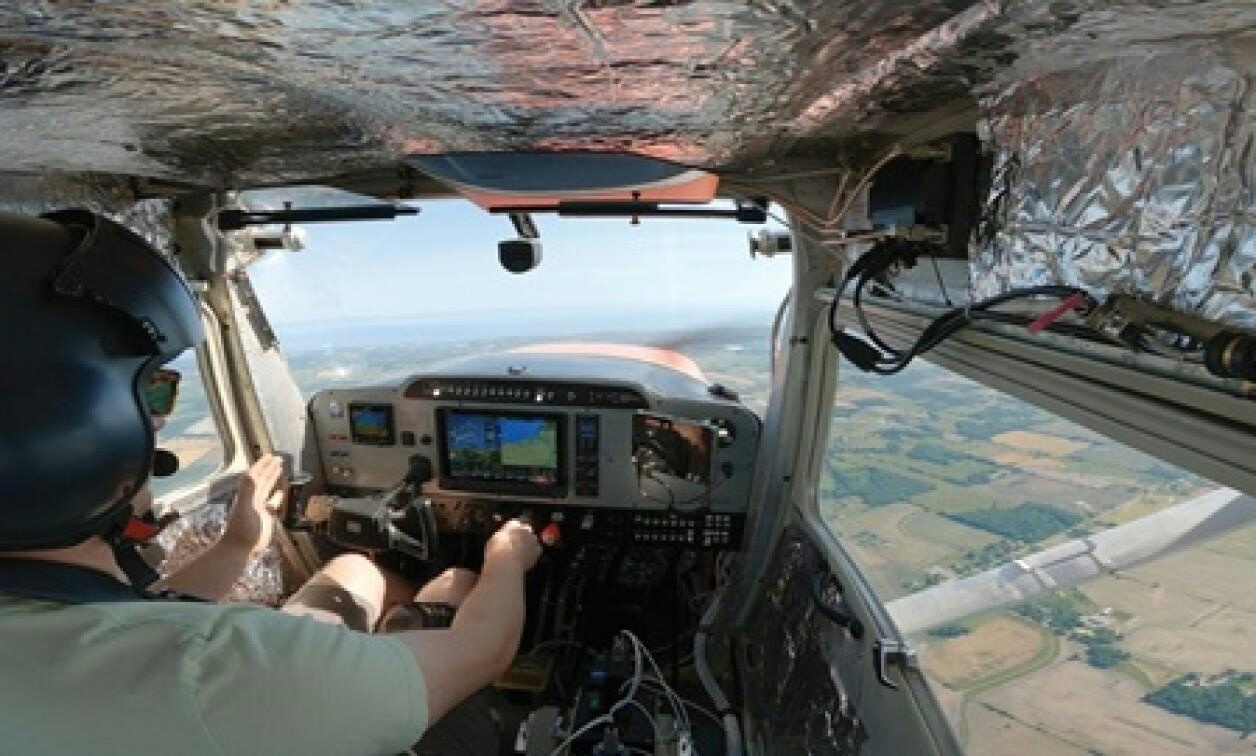AeroGenie — Il tuo copilota intelligente.
Tendenze
Categories
Ribbit Advances Autonomous Aircraft Autopilot Testing with AI-Driven Tools

Ribbit Advances Autonomous Aircraft Autopilot Testing with AI-Driven Tools
Monrovia, Calif. – September 15, 2025 – Ribbit, a Canadian startup at the forefront of autonomous flight technology for air cargo, is accelerating the development and validation of its safety-critical autopilot software through a strategic partnership with Parasoft, a global leader in AI-driven software testing solutions.
Software-First Approach to Autonomous Flight
Rather than developing new aircraft platforms, Ribbit adopts a “software-first” strategy by retrofitting existing small aircraft with autonomous autopilot systems and rugged, off-the-shelf hardware components. The company’s core autonomy software, developed in C++ to ensure reliability and precise control, undergoes rigorous testing using Parasoft’s automated tools tailored for C/C++ development. This approach enables Ribbit to maintain high standards of code quality and system robustness.
Carl Pigeon, Ribbit’s co-founder and CEO, emphasized the importance of Parasoft’s tools in their development process, describing them as essential for enforcing standardized coding practices and ensuring consistent product quality. He noted that the static analysis capabilities function like a “personal tutor,” setting benchmarks for code excellence and facilitating the onboarding of new engineers.
Navigating Regulatory and Market Challenges
Ribbit faces significant regulatory scrutiny as it seeks to demonstrate the safety of its pilotless systems in some of the most demanding operational environments. Aviation authorities, including Transport Canada, require comprehensive evidence of safety compliance, particularly as standards for unmanned aircraft continue to evolve. Parasoft’s compliance features, which enforce industry standards such as DO-178C, MISRA, and JSF coding guidelines, enable Ribbit to address regulatory requirements early in the development cycle. This proactive approach allows engineers to detect and resolve potential issues before they escalate.
The competitive landscape for autonomous systems is intensifying, with major players like Tesla and Hurco investing heavily in AI-driven testing tools to enhance safety and operational efficiency. However, the sector is also grappling with heightened legal and reputational risks, exemplified by Tesla’s recent $243 million verdict and ongoing scrutiny of its autonomous vehicle technology. These developments underscore the critical need for rigorous and transparent testing processes across the autonomous mobility industry.
Stepwise Validation and Real-World Testing
Ribbit employs a phased validation methodology, beginning with onboard safety pilots and progressing to remotely supervised flights under Canada’s Special Flight Operating Certificate (SFOC). This incremental approach allows the company to gather real-world operational data while maintaining flexibility and safety.
Parasoft’s aerospace expertise and TÜV SÜD certification bolster Ribbit’s compliance efforts, integrating seamlessly with the company’s existing workflows. The Parasoft C/C++test platform provides real-time issue detection through a Visual Studio Code plugin and leverages AI-powered triaging to prioritize critical fixes—an essential feature for a team managing multiple development requirements. By combining continuous integration pipelines with simulation environments, Ribbit has achieved an impressive 90-95% test coverage.
Ricardo Camacho, Parasoft’s director of product strategy for embedded and safety-critical compliance, highlighted Ribbit as a model for aerospace innovation. He noted that by embedding Parasoft’s static analysis tools into their continuous integration workflow, Ribbit demonstrates how rapid development can proceed without compromising safety. Their verified processes offer clear evidence of rigorous software development well before formal certification.
Looking Ahead
Since integrating Parasoft’s solutions, Ribbit has secured multiple government contracts exceeding $1 million, reflecting strong market confidence in its technology. As regulatory scrutiny and competition continue to intensify, Ribbit’s commitment to AI-driven, standards-based testing positions the company to effectively address both safety and operational efficiency—two critical factors shaping the future of autonomous aviation.

Emirates Unveils Cabin Design for New Boeing 777X

Eighteen Years On, the Airbus A380 Remains Central to a $34 Billion Airline

How a boom in luxury airline seats is slowing down jet deliveries

Navitaire Outage Attributed to Planned Maintenance

DigiYatra Debuts Outside Aviation at India AI Impact Summit

Vietnam Orders Strengthen Boeing’s Commercial Outlook

Airbus Signals Uncertainty Over Future A400M Orders

JobsOhio Awards $2 Million Grant to Hartzell Propeller for Innovation Center

Collins Aerospace Tests Sidekick Autonomy Software on YFQ-42A for U.S. Air Force CCA Program

How the Airbus A350-1000 Compares to the Boeing 777
